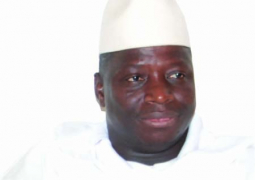The order for the cessation of operations of Teranga FM, a community radio station based in Sinchu Alagie village in the Kombo North district of the West Coast Region, represents an assault on press freedom.
The radio station, according to our sources, was last Thursday ordered to cease operations. To our knowledge, no official reason(s) was advanced for the sudden order to close down.
However, the same sources believe the order is connected with the radio's review of the local newspapers whose news content it broadcasts in the two major Gambian languages, Mandinka and Wollof, for the benefit of members of the audience who do not know a word of English.
Since this unfortunate development, there has been a lot of speculation, especially in the West Coast Region, where the radio, within its short period of operations, has captured the attention of the general public, most of whom relied on Teranga FM to get the day's news.
However, going by past happenings, this latest closure of a popular radio station should not come as a surprise to anyone in this country, considering the fact that Citizen FM radio and Sud FM radio, both dynamic stations with captivating news programs, amidst a lot of other imaginative programming, were also closed down by the Gambian authorities.
In our view, the daily review of the news carried in the independent press by Teranga FM was in line with their legitimate duty to inform, entertain and educate their audience, and this case has pointed up yet again the hazards of professionalism.
Indeed, this is the problem confronting Gambian media institutions and their workers. They are expected to behave like amateurs, and to exhibit mediocrity.
However, the moment they try to operate and work as real professionals, then they realize that is not encouraged.
Yet media workers, especially those of them who are journalists, must be allowed to do the work expected of them.
Actually, it is the case that whenever a journalist attempts to be a true professional, in this country, and engages in carrying out his or her legitimate assignments, some quarters misconstrue that as 'hostile acts' - whatever that means.
In fact, this happens all the time, and journalists are always marked out as targets.
Yet, nothing can be further from the truth than to regard journalists practicing their craft effectively as a threat.
Also, what security agencies and their masters must appreciate in that as the gathering of good intelligence is to them a duty to be fulfilled on a daily basis, so also journalists and other categories of workers in the mass media regard the dissemination of information for public consumption as their sacred duty.
In other words, the duty of journalists is to gather and disseminate information for public consumption; it is not to aid specifically and purposely facilitate the strategic advantage of any government.
We, therefore, appeal to the concerned authorities to have a rethink, and allow the radio to resume operations.
They must consider the plight of the many listeners of Teranga FM, most of whom rely on the radio station to know what is happening in the society, which is their right.
"The press is not only free, it is powerful. That power is ours. It is the proudest that man can enjoy."
Benjamin Disraeli
Read Other Articles In Article (Archive)
Man Charged for Allegedly Setting Fire to Bunuborr Forest Park
Mar 20, 2009, 6:21 AM


